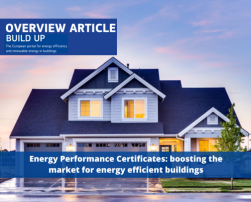
Energy Performance Certificates: boosting the market for energy efficient buildings
As Europe moves towards a more sustainable future, energy performance ratings are becoming a key driver in transforming the real estate market. Central to this shift is the Energy Performance Certificate (EPC), a policy instrument that not only certifies a building's energy efficiency but also seeks to incentivise investment in greener properties. The revised Energy Performance of Buildings Directive (EU/2024/1275) aims to improve comparability of EPCs across Member States, as well as making them more reliable and digitalised. However, Europe's diverse building stock and the varying energy policies of Member States present significant challenges to these goals.
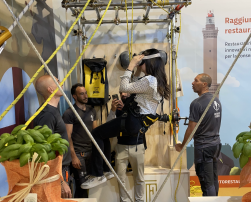
Overcoming the motivation and skills gap in the construction industry
This article presents early findings from the RES2 project, focusing on challenges within Italy's construction industry, particularly the lack of motivation and necessary skills among young professionals and women.
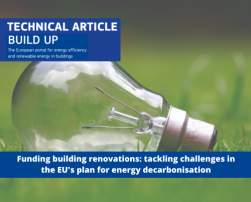
Funding building renovations: tackling challenges in the EU's plan for energy decarbonisation
Buildings account for 36% of EU emissions. The EU aims to cut building emissions by 60% by 2030 and achieve carbon neutrality by 2050, necessitating substantial investments. Initiatives like SHERLOCK align financial and technical skills to de-risk energy efficiency investments, essential for energy savings, economic growth, and job creation.
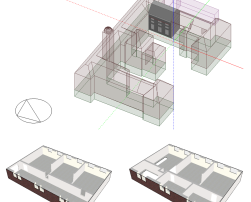
Innovative simulation models for building performance and control
This article describes the process of BPS modelling, lessons learned, and best practices from the use case in SMARTeeSTORY.
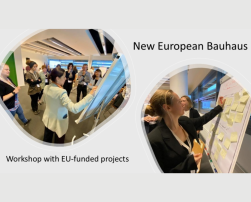
How are the New European Bauhaus values and working principles perceived and implemented in ongoing EU-funded R&D projects?
On September 24th in Luxemburg, the NEBULA project organised the very first workshop dedicated to the New European Bauhaus at the Sustainable Places Conference, with a participative approach proposed. This article proposes a synthesis of the exchanges between participants.
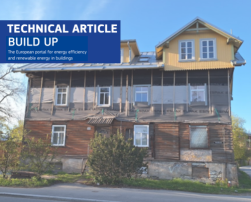
Energy renovations of historic homes: insights from the LIFE IP BuildEST Historic Building Renovation Living Lab
The article explores the strategies in renovating historic homes while improving their energy performance and indoor climate along with preserving heritage values. It highlights renovation challenges and financing complexities.
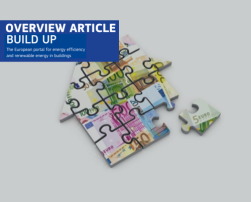
Tackling barriers to financing building renovation: an overview of selected EU initiatives
While the path to decarbonising Europe's building sector is fraught with challenges, adopting diverse and innovative financing mechanisms for building renovation is crucial to achieving the objectives of the European Green Deal. This article provides a non-exhaustive overview of the current financial instruments available for stimulating building renovation in the EU, sheds light on the obstacles impeding access to these resources and explores ongoing policy efforts and solutions to accelerate the transition towards a more energy-efficient built environment.
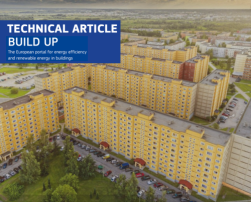
Pioneering high-rise apartment building renovations: lessons from the Annelinn+ pilot project
This article explores challenges and learnings from a living lab project on energy-efficient renovation in multi-storey apartment buildings in a neighbourhood context. It offers valuable insights for policymakers, building professionals, and homeowners.

A blueprint for success: How a modular renovation passport can accelerate deep renovation
The iBRoad2EPC project, funded by the EU's Horizon 2020 programme, developed an affordable, adaptable and modular renovation passport that helps Member States meet most of the mandatory and optional requirements for renovation passports listed in the EPBD, according to their national priorities and targets. This approach also helps Member States to bridge the gap between EPCs and renovation passports, integrating them to motivate building owners to undertake staged deep renovations.
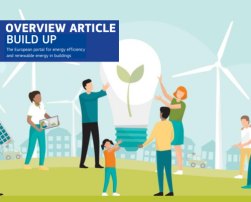
Energy communities and citizen-led initiatives for sustainability in buildings
What if citizens could not only be active participants in the energy transition but also reap economic and social benefits?
Collective, non-discriminatory, citizen-driven initiatives that support the clean energy transition and energy communities start mainly as renewable energy projects. These initiatives are increasingly involved in the progressive renovation and decarbonisation of the building sector. They aim at collective social and environmental well-being rather than profit, often with the additional objective of combating energy poverty by making the cost of energy more affordable.